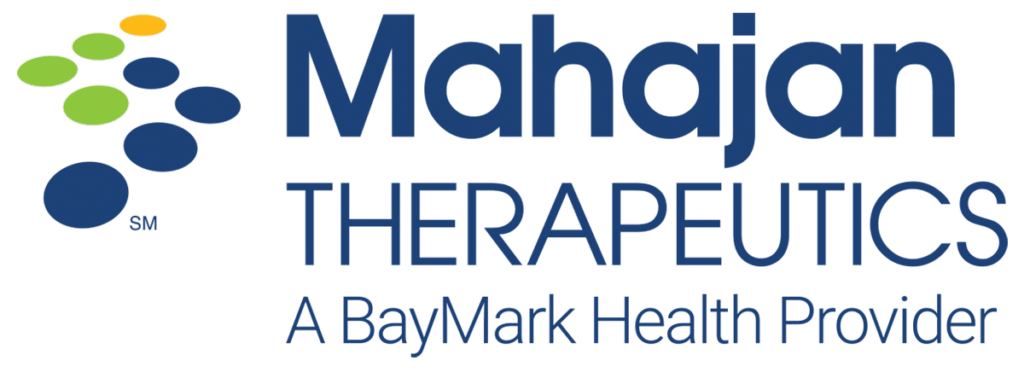
Discover how Mahajan Therapeutics collaborates with juvenile courts and case managers to deliver trauma-informed court-involved youth mental health care for teens with complex needs.
Supporting justice-involved youth in the court system who have complex mental health needs is crucial in today’s society. By doing so, we help decrease reoffending rates, boosts public safety and improves their quality of life. In addition, it provides the necessary mental health support and family-based therapy to promote healthier futures. Addressing these needs prevents the cycle of criminality, overcomes systemic care barriers and helps build improved, more integrated communities.
At Mahajan Therapeutics, we recognize that delayed treatment can significantly impact the health and well-being of our most underserved youth. In fact, research indicates that those who lack adequate youth-focused mental health care are at higher risk of reoffending. Those who receive adolescent mental health services tend to have lower recidivism rates and longer intervals between offenses. Please continue reading to learn more about how we support court-involved youth with complex mental health needs.
Trauma-Informed Mental Health Services for Teens
Trauma-informed care is an approach to youth mental health that acknowledges the effects of traumatic experiences on a young person’s life. However, childhood trauma is more prevalent than many realize, impacting young people across all aspects of their physical, psychological and emotional health.
The goal of trauma-informed therapy is to support young adults by creating a safe and supportive environment that focuses on their behavioral health. Outpatient services address the emotional and cognitive impacts of trauma and lower the risk of negative behaviors. Some core principles of adolescent mental health treatment include the following:
- Offering safety: Counselors foster a supportive environment where children, teenagers and young adults feel comfortable discussing their experiences.
- Fostering trustworthiness: Treatment teams work to develop trust and transparency between counselors and patients.
- Building empowerment: Giving young people a voice in their treatment can help them feel a sense of control over their lives.
- Healing relationships: Therapies include improving relations between youth and their family so they can build a support system.
- Developing coping strategies: Emotional regulation for teens and children is essential for improving their decision-making and futures.
Trauma-informed care acknowledges how trauma affects the mental and emotional health of young people. This approach also ensures that all interactions with court-involved youth are sensitive to their trauma experiences.
Therapy Options for Justice-Involved Youth
Trauma-informed care is not one particular treatment method. Instead, it is a broad framework utilized in various settings to assist youth, adolescents, teens and young adults. Some forms of therapy available for youth counseling include:
- Medication Management Therapy involves prescribing, monitoring, and adjusting medications as part of a comprehensive treatment plan. Medications are for managing mental illness and behavioral conditions, along with other co-occurring disorders. Patients take their medicines in conjunction with another form of therapy for optimal results.
- Cognitive Behavioral Therapy (CBT) is a practical approach using an interactive and skills-based approach to helping the youth manage psychological symptoms. They learn to recognize and challenge negative thought patterns and behaviors. It benefits conditions such as anxiety, depression and trauma, involving learning coping strategies through engaging tools like worksheets and role-playing.
- Trauma-Focused CBT (TF-CBT) specifically targets psychological trauma from traumatic events. It includes strategies to promote safety and trust, which may sometimes involve parent sessions.
- Dialectical Behavior Therapy (DBT) is a comprehensive, evidence-based therapy aimed at helping youth handle intense emotions, prevent self-harm and strengthen relationships. It imparts essential skills in four key areas: mindfulness, distress tolerance, emotion regulation and interpersonal effectiveness. DBT-A supports young people dealing with depression, anxiety, eating disorders, substance misuse and suicidal ideation. They are encouraged to accept their feelings alongside efforts to change.
- Psychoeducational Therapy is a method that blends education on mental health conditions with therapeutic techniques. It helps to boost understanding, coping skills and emotional health. Additionally, it educates young people and their families about mental health, normalizing their experiences. This can empower them to manage their symptoms by developing skills in self-care, stress management and maintaining healthy relationships.
- Solution-focused Therapy helps justice-involved youth by focusing on their strengths, resources and desired future. The focus is not solely on their legal problems. Therapists ask questions to identify past successes and “exceptions” to problems, like the miracle question, to guide youth toward positive changes. This strengths-based approach empowers youth to become experts in their own lives, helping to build autonomy and motivation. Patients also build skills in self-management, decision-making and building positive relationships at home and school.
- Play Therapy helps young people utilize their natural language of playing to express challenging emotions. They work through traumatic experiences and build healthy coping skills. In a secure therapeutic play environment, children interact with toys, art and various activities under the guidance of a trained professional. This promotes better emotional health and enhances problem-solving abilities while supporting social development.
Additionally, every young patient has the option to access individual and group therapy. In group therapy sessions, they can connect and learn from their peers. Counselors also encourage family therapy sessions where they can rebuild relationships with their loved ones.
Treatment Programs for Teens with Behavioral Health Issues with Mahajan Therapeutics
Mahajan Therapeutics offers services to youth at risk of or involved in the court system, along with their families. Typically, our clients range in age from 7 to 18 years old. This is the typical age range for youth in the juvenile justice system.
Many children we serve have faced Adverse Childhood Experiences (ACEs), such as abuse and neglect. These experiences can significantly affect their mental health and well-being, often resulting in involvement with the juvenile justice system. Our programs address the diverse needs of these children and their families. We aim to provide support and resources that help them envision and strive toward a brighter future.
Mahajan Therapeutics offers comprehensive wraparound services to support youth in addressing emotional health challenges. Licensed behavioral health experts trained to work with young people conduct our intensive outpatient therapy programs. The approach emphasizes individual counseling, as well as group and family therapy. Moreover, a certified counselor is more than happy to handle case management and additional services necessary for a youth court program.
Contact Mahajan Therapeutics today to learn more about our youth programs.
